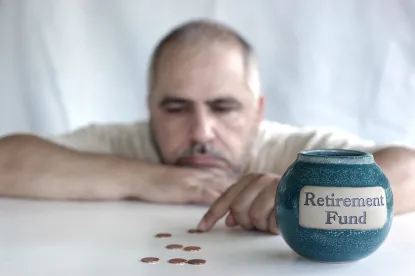On June 1, 2018, the U.S. Court of Appeals for the Ninth Circuit ruled that an asset purchaser that was deemed a successor was liable to pay the seller’s withdrawal liability even though the purchaser did not have actual knowledge of the liability. The Ninth Circuit found that constructive notice of the liability was sufficient to impose withdrawal liability on the asset purchaser. This ruling raises the hurdles that a successor must overcome to avoid withdrawal liability in an asset sale transaction.
Background
In Heavenly Hana v. Hotel Union & Hotel Industry of Hawaii Pension Plan, No. 16-15481 (June 1, 2018), a private equity group purchased a hotel and related assets. The hotel (the acquired entity) had participated in an underfunded multiemployer pension plan, but the hotel stopped making contributions to the plan shortly before the acquisition closed. The plan had knowledge of the hotel’s withdrawal, but did not formally assess withdrawal liability (in the amount of $757,981) until after the acquisition closed. The district court concluded that even though the private equity group was a successor (i.e., there was sufficient continuity of business operations), it was not liable because it lacked actual notice of the seller’s withdrawal liability obligation. The district court also held, in the alternative, that no constructive notice existed because the private equity group had acted diligently and reasonably under the circumstances and still had not discovered the existence of the seller’s withdrawal liability obligation.
The Ninth Circuit’s Decision
The Ninth Circuit reversed the district court’s conclusions and held that successor liability requires only constructive notice, reasoning that the statutory structure should be interpreted liberally to protect participants in employee benefit plans. (Note that on appeal, the purchaser conceded its status as a “successor,” so the only element for successor liability in dispute was whether the asset purchaser had notice of withdrawal liability.) The Ninth Circuit further held that a reasonable purchaser in this particular situation would have discovered the seller’s withdrawal liability obligation since one of the members of the private equity group had prior experience with a hotel that participated in a multiemployer pension plan, the plan’s annual funding notices—showing that the plan was underfunded—were publicly available on the plan’s website, and the hotel’s employment of unionized employees that required contributions to the plan was disclosed.
Key Takeaways
The decision in Heavenly Hana significantly raises the bar for purchasers trying to avoid successor liability for withdrawal liability. Purchasers can no longer rely on the representations of sellers regarding the funded status of multiemployer pension plans and whether withdrawal liability exists. Under a constructive notice standard, asset purchasers are deemed to have knowledge of facts which reasonable care or diligence would disclose. Examples of such reasonable care and diligence would include
- reviewing publicly available plan documents;
- asking for copies of all plan notices (rather than relying on summaries); and
- requesting a plan provide an estimate of withdrawal liability.
The Ninth Circuit, citing equitable considerations, caveated its decision by stating that successor liability would “only be imposed when it is fair to do so,” but the court did not elaborate on the constructs of this exception.
Although alarming, but perhaps not surprising, entities must assume the worst-case scenario for what the legal standard for successor withdrawal liability might be in the future. The parties in Heavenly Hana signed the purchase agreement in 2009, nearly six years before the first case in the Ninth Circuit—following the Seventh Circuit—applied successor liability in the context of withdrawal liability (Resilient Floor). In fact, the private equity group in Heavenly Hana had received a legal opinion that, absent an express assumption, no withdrawal liability would be assumed, but the Ninth Circuit rendered this opinion incorrect with its Resilient Floor decision.
In light of the decision in Heavenly Hana, asset purchasers hoping to avoid successor withdrawal liability may wish to consider the following points:
- Avoid being a successor employer, in the first place, if business rationale(s) permit.
- If successor employer status cannot be avoided, investigate the funded status of any multiemployer pension plan to which the seller contributes and the amount of any potential withdrawal liability—ideally requesting withdrawal liability estimates.
- Analyze whether any exceptions may apply to the imposition of withdrawal liability, such as the construction industry exemption or ERISA Section 4204.
- Seek relief and financial protection from the seller in the asset purchase agreement—for example, through purchase price adjustments, indemnities or escrow accounts.
The decision in Heavenly Hana certainly underscores the sagacity in caveat emptor.





 />i
/>i
